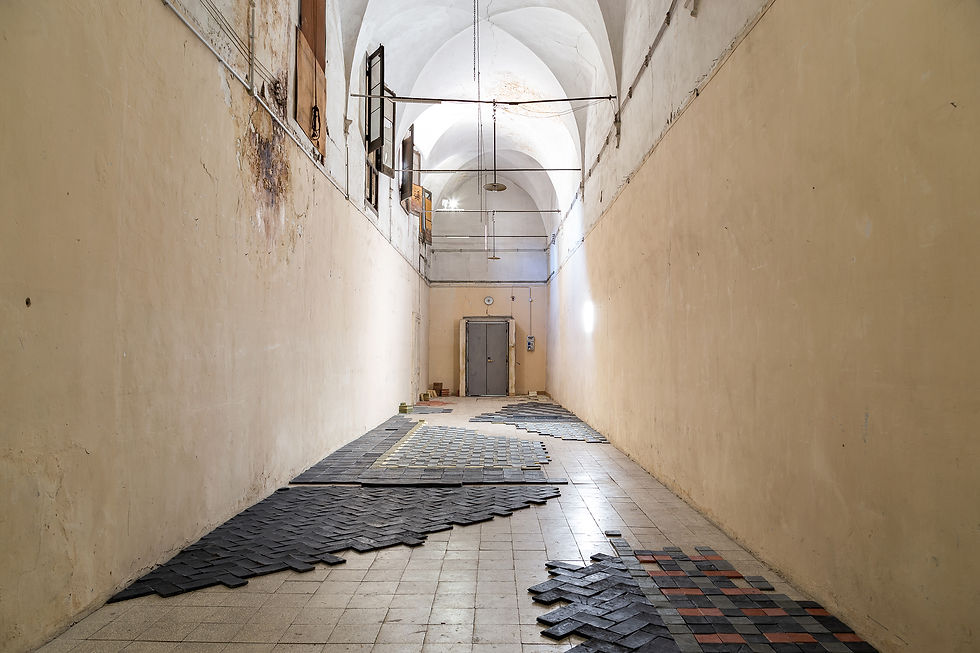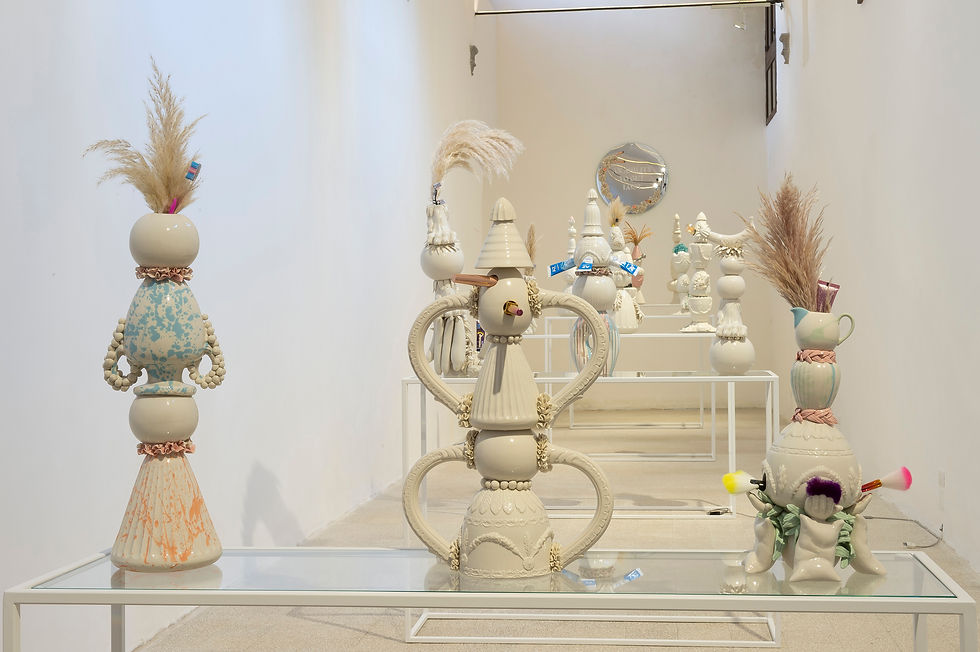- May 25, 2023
- 3 min read
by Nuvola Ravera
curated by Chiara Pirozzi
LAB.oratorio space

Soap Opera is an exhibition in line with the mission of the Made in Cloister reconversion project, which started with the recovery of the former abandoned cloister within the Bourbon woolen mill complex, to transform it into an exhibition and performance venue in where artists can confront the ancient traditions in a wider urban regeneration project.

Nuvola Ravera has conceived a site specific installation after a period of research on the territory and production carried out with the Neapolitan workers specialized in artisan saponification. From these premises, the artist has interpreted the exhibition space as if it were a place of archaeological finds and, at the same time, a domestic-urban carpet. Nuvola Ravera traces a series of rooms testified, at present, by the remains of a pre-existing floor, partly emerged and partly lost. Nuvola Ravera's research intertwines the idea of the common and monumental good with protection and conservation actions, observing their limits and obligations, finding in the use of a soluble material such as soap the symbolic key to a sensitive and always interpretable. If these suggestions reach the artist starting from a study of the history and everyday life of the Porta Capuana woolen mill complex, a further stimulus comes from reading the landscape of the city of Naples, from its stratifications, from the architectural weaves, from the smells, such as that of soap coming from homes, which connect the inside with the outside, tracing a perceptive geography of the urban space.
In Soap Opera the artist develops a longitudinal narration that undermines the exhibition space, drawing a path that is constantly interrupted and jagged, in disappearance, which temporally crosses physical places and layers of memory, photographing the remains of an era that has not yet passed , to be freed from the fever of custody of cultural heritage, at the same time imbued with an intimacy, private and domestic, in continuous transformation.
Nuvola Ravera's research, which often connects the biographical dimension to a psychic reading of places through the creation of ephemeral devices, combines perfectly with the experimental and mobile dimension that a space like Lab.Oratorio wants to have.
The exhibition was created thanks to the support of the MiBAC and SIAE as part of the initiative "Sillumina - Private copy for young people, for culture" and enjoys the support of SuperOtium for the artist's residence .

Nuvola Ravera was born in Genoa in 1984. She studied in the Department of Painting at the Ligustica Academy of Fine Arts - Genoa, attended a master's degree in contemporary photography at Cfp Bauer- Milan, Cinema and video at the Brera Academy of Fine Arts and at the Hochschule für Grafik und Buchkunst- Leipzig. He has supported various artists in the production of selected projects including Armin Linke in Berlin, Bouchra Khalili in Genoa and Giorgio Andreotta Calò. He lives and works in Venice where in 2016/17 he participated in the residency program of Bevilacqua La Masa and is currently completing the IUAV university in the department of Visual Arts. He has exhibited and collaborated with various institutions including: Museum of Contemporary Art Villa Croce, Genoa; Castel Sant'Elmo, Naples; Bevilacqua La Masa Foundation; Museum of Aveiro; Atelierhaus Salzamt, Linz; Steam Factory, Milan; Pistoletto Foundation, Biella; Venice Biennial. She has appeared in publications: Lady Dior, as seen by a new generation of Italian artists, Mousse Publishing; Genoa Ventimiglia Genoa, Humboldt Books. She was nominated by Artribune magazine as the best young Italian artist for 2017.




















